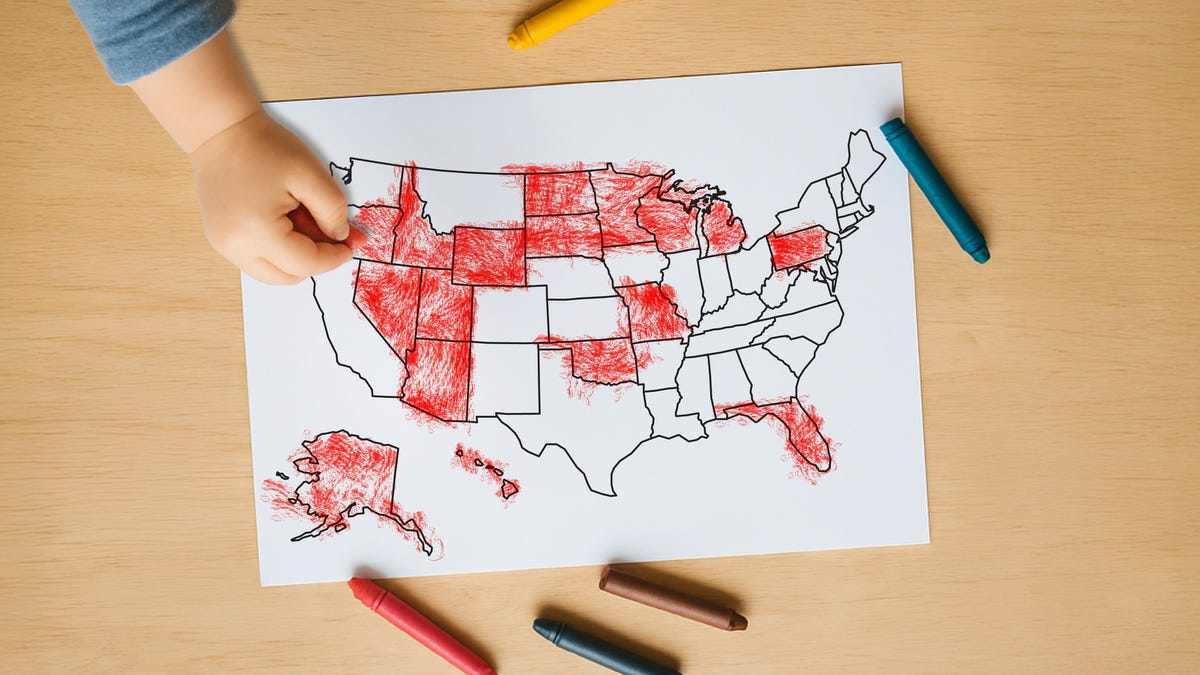Before becoming a school nurse in Austin, Texas, Becca Harkleroad assumed mandated childhood vaccinations were just part of back-to-school.
“It never occurred to me until I was a school nurse that immunizations could be such a controversial topic,” said Harkleroad, executive director of the Texas School Nurses Organization (TSNO).
The controversy has only gotten more divisive in recent years, she said, leading more parents to exempt their kids from receiving mandated vaccinations before heading back to school due to religious or philosophical reasons.
In the 2024-2025 school year, 17 states had more than 5% of kindergarteners claiming a nonmedical vaccine exemption. Depending on the state, not every school building has a nurse on site. But if they do, the extra workload to handle those exemptions typically falls on them, Harkleroad said.
“What we try to do is prepare our nurses as much as possible to have those hard conversations… To hear what parents say and respond in a nonjudgmental way,” she said. “A kid is a parent’s most absolute precious treasure. Of course, they’re going to question everything they do.”
As nonmedical exemptions rise across the country, vaccine rates among kindergarteners are steadily decreasing. In the 2019-2020 school year, only three states reported that less than 90% of kindergarteners were vaccinated against measles, mumps and rubella. Last year, that figure rose to 16 states.
In these states, health experts say lawmakers have made it easier for parents to opt out of vaccinating their children, which has fueled exemption rates. The decline in vaccination rates is also partly due to vaccine misinformation on social media and mixed messages about vaccine recommendations from federal health officials, said Dr. Philip Huang, director of the Dallas County Health and Human Services.
On Aug. 19, the American Academy of Pediatrics broke with federal guidance and released its own vaccine recommendations. The schedule recommends that all children between six months and 23 months receive the latest COVID-19 vaccine, despite Health and Human Services Secretary Robert F. Kennedy Jr. announcing in May that the Centers for Disease Control and Prevention was no longer recommending the shot for healthy children.
In response to the AAP guidance, Kennedy called the professional organization of board-certified pediatricians “angry.”
“What’s disturbing are these mixed messages… that are not consistent with the science and are coming from the highest levels of Health and Human Services,” Huang said. It leads parents to question vaccines, leading to decreased vaccination rates.
He fears this trend may fuel disease outbreaks among children as they head back to school, just as a measles outbreak centered in West Texas ended Aug. 18. The outbreak led to 762 cases, with two-thirds occurring in children, and two deaths of school-aged children since late January. More than 94% of cases were in unvaccinated people, according to data from the Texas Department of State Health Services.
In Texas, about 4.3% of kindergarteners opted out of receiving vaccines for nonmedical reasons during the 2024-2025 school year. If the trend continues this year, the state may fall short of the 95% vaccination rate needed to achieve herd immunity and prevent outbreaks, said Dr. Sapna Singh, chief medical officer at Texas Children’s Pediatrics.
“It’s extremely concerning and it’s a discussion I’ve been having more and more with families,” she said.
A new state law that was passed during the measles outbreak will also make it easier for Texas parents to access vaccine exemption forms. Instead of requesting the forms to be mailed to parents, they can download the forms online starting Sept. 1.
The mail-in process was “designed that way for parents to make a thoughtful decision,” said Terri Burke, executive director of the Immunization Partnership based in Houston, Texas. “The very basic consequence is that we’re going to see a tremendous increase in kindergarteners attending school unvaccinated.”
Proponents of the law argued it modernizes and streamlines a burdensome and outdated process for busy parents juggling other tasks ahead the start of the school year, according to a compilation of public comments submitted to Texas lawmakers.
But Harkleroad worries parents may download the exemption because it’s more convenient than getting their child vaccinated, especially in rural areas where healthcare can be difficult to access.
Exemption forms are already available online in some states, like Pennsylvania, which reported a 6% vaccine exemption rate during the 2024-2025 school year. Holly Verderame, president of the Pennsylvania Association of School Nurses and Practitioners and a school nurse in Chester County, said parents can also write a letter to the school opting out of mandated vaccines.
“School nurses, in general, are always concerned about an outbreak of any kind. It’s part of our surveillance,” she said.
The misinformation on social media has been harder to combat over recent years, Singh said: “They spend hours and hours a day receiving this information online and we only get 10 minutes with them.” But she still encourages parents to contact their pediatricians and family doctors with questions or concerns about vaccines.
“Most pediatricians, we’re in this field of medicine because we genuinely care about preventative health for children, their growth and development and keeping them safe. Vaccines have historically been a big part of that prevention effort,” Singh said
